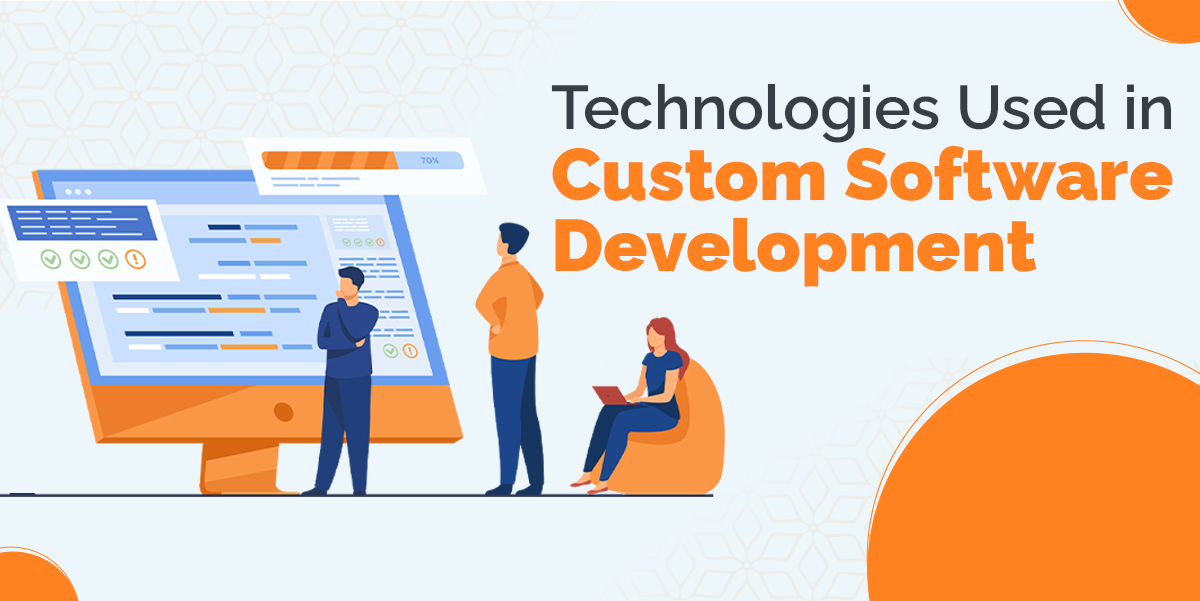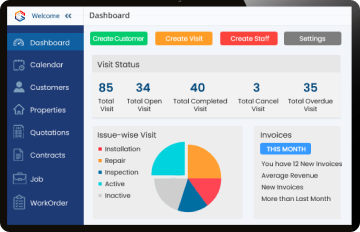Custom software development has transformed how businesses work. They now require unique software for different tasks. Whether it’s an app, a website, or an entire system, developers depend on certain technologies to make these solutions.
We’ll examine the main technologies used to build custom software and how they help. Let’s start!
Programming Languages: The Core of Software Development
Programming languages are the backbone of any software. Developers write code using these languages. That code makes the software function. Here are some common languages used in custom software development:
- JavaScript: JavaScript powers many websites and apps. It can run on almost any device, making it highly flexible.
- Python: Python offers simple and clear syntax, allowing quick development of many software types.
- Java: Java works well for large systems. Its built-in security features make it ideal for businesses.
- C#: C# often builds web apps and desktop software, especially for Windows systems.
Choosing the right language depends on what the software must do and where it will run.
Front-End Development: The User Experience
Front-end development involves creating what users see and interact with. Developers use several technologies to build websites and apps that look great and work well:
- HTML: HTML creates the structure of a webpage, like a skeleton. It organizes the content.
- CSS: CSS adds the style to a webpage. It determines the colors, fonts, and overall layout.
- JavaScript: JavaScript makes the webpage interactive. It helps buttons work and adds effects like animations.
These tools help developers craft user-friendly designs. A smooth front end makes sure users enjoy interacting with the software.
Back-End Development: Powering the Software
The back end is the part users don’t see, but it makes everything work. It runs the logic and handles requests. Developers use these technologies for back-end development:
- Node.js: Node.js allows developers to build fast and scalable apps. It excels at handling lots of data quickly.
- Ruby on Rails: Ruby on Rails helps developers build projects faster by following set rules.
- PHP: PHP works mainly on websites, especially those that need frequent updates.
Back-end technologies handle the heavy lifting behind the scenes. They make sure everything runs smoothly.
Databases: Storing and Managing Data
Every software application needs to store and manage data. Different databases work for different kinds of projects. Here are two main types:
- SQL Databases (e.g., MySQL, PostgreSQL): SQL databases store data in tables. These work well for projects that need to organize data.
- NoSQL Databases (e.g., MongoDB): NoSQL databases allow flexible storage. They handle large amounts of data faster.
Databases play a key role in organizing data and retrieving it quickly.
APIs: Connecting Different Systems
APIs, or Application Programming Interfaces, link different systems. A software API lets programs talk to each other. For example, when you book a flight online, an API ties the website to the airline’s system.
Here are the most common types of APIs:
- REST APIs: REST APIs offer a simple path to work with web applications. They grow easily and are user-friendly.
- SOAP APIs: SOAP APIs provide strong protection, making them useful when data needs extra safety.
APIs let developers add features quickly without building everything from scratch.
Cloud Platforms: Scalability and Flexibility
Cloud platforms have changed how the software operates. Instead of storing everything on local servers, developers can store it in the cloud. Here are three leading cloud platforms:
- Amazon Web Services (AWS): AWS provides many services, from data storage to machine learning.
- Microsoft Azure: Azure integrates smoothly with Microsoft tools and offers excellent developer features.
- Google Cloud: Google Cloud offers strong tools for data processing, making it great for handling large datasets.
Cloud platforms allow the software to grow or shrink as needed. They also offer automatic backups, security, and easy maintenance.
DevOps Tools: Automating the Process
DevOps helps streamline development by combining development and operations into one process. Team members can work more efficiently and effectively with DevOps tools. Here are some essential DevOps tools:
- Docker: Docker packages apps into containers that run consistently on any platform.
- Kubernetes: Kubernetes manages these containers. It ensures they scale and perform as needed.
- Jenkins: Jenkins automates tasks like building and testing code.
These tools allow developers to focus on creating new features while automating other parts of the process.
Version Control: Tracking Changes
In large teams, multiple people may work on the same project. Version control tools help track changes and prevent errors. The most popular version control system is Git.
With Git, developers can track and manage updates to the software. It helps them avoid mistakes and roll back changes if something goes wrong. Version control ensures that everyone works with the most up-to-date code.
Frameworks: Speeding Up Development
Frameworks provide templates and pre-written code, helping developers work faster. They come with built-in features like security and routing, allowing teams to build projects more quickly. Some popular frameworks include:
- React.js for front-end work.
- Django for Python-based back-end development.
- Spring for Java projects.
Frameworks reduce repetitive coding and allow developers to focus on building unique features.
Security Tools: Keeping Software Safe
Security is critical in software development. Developers use various tools to protect their projects from hackers and other threats. Here are some common security tools:
- Encryption: Encryption scrambles data so only the right person can read it.
- Firewalls: Firewalls block unauthorized access.
- SSL/TLS: SSL/TLS protects data sent between the user and the server.
Using security tools ensures software is safe and that user data stays private.
Testing Tools: Ensuring Quality
Testing ensures that software works as expected. Developers use testing tools to find and fix bugs. Here are a few common testing tools:
- Selenium: Selenium tests how web apps perform
- JUnit: JUnit tests Java-based projects
- Postman: Postman tests APIs to ensure they function properly
Testing tools help catch problems early so developers can fix them before the software is released.
Conclusion: A Mix of Tools and Technologies
Custom software development relies on many technologies. From programming languages to cloud platforms, each tool plays an important role. The right mix of tools depends on the project. Understanding these technologies helps businesses and a software development company create efficient and effective software together.







